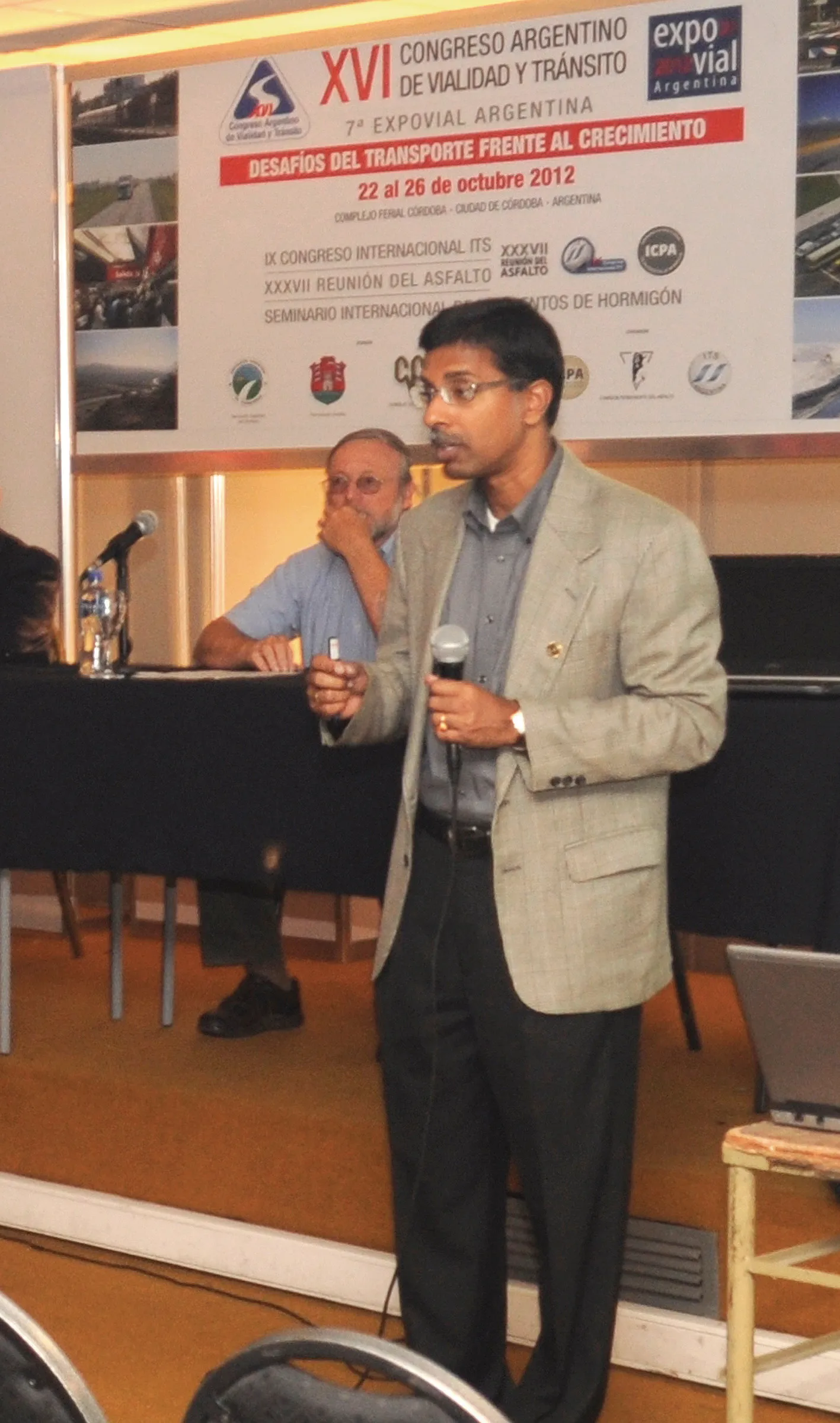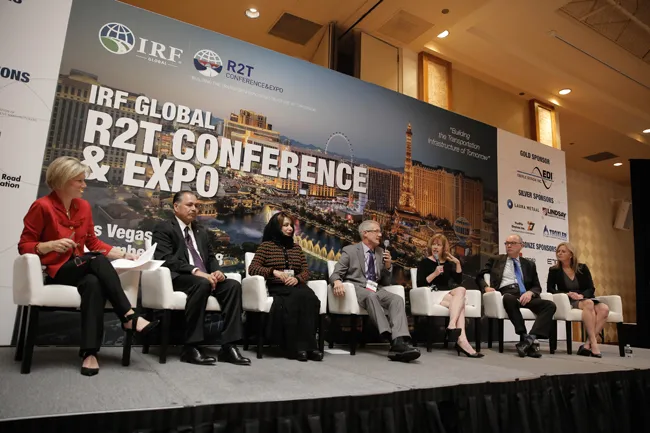Designing structures and pavements to accommodate warmer weather and more extreme temperatures On October 22nd, IRF held a notable workshop on environmental protection and the impacts of climate change in Cordoba, Argentina, in conjunction with the XVI Argentine Congress of Road Administration and Traffic. The workshop addressed a topic of key concern to transportation planning and design professionals around the world. The discussion was animated by guest panellists Professor Ram M Pendyala and Gordon Rex
January 22, 2013
Read time: 3 mins

Designing structures and pavements to accommodate warmer weather and more extreme temperatures
On October 22nd,With transport infrastructure increasingly tested by extreme weather events, highway engineers are increasingly been asked to correct vulnerabilities in the existing road network and factor changing weather patterns in the design of new roads.
Major transportation facilities fail, break down, and get disrupted in significant ways during extreme weather events – requiring that transportation engineers plan and design systems such that the infrastructure is both resilient and redundant. Resilience calls for the transportation system to recover rapidly from a disruption, while redundancy calls for the inclusion of back-up systems that can continue to provide service when some facilities break down. In particular, the transportation system should continue to serve the needs of people by facilitating evacuation, emergency services, relief supplies, and flow of goods even in the event of extreme conditions.
Many measures can be taken to lessen the impacts or reduce the risk of damage from severe storms occurring as a consequence of climate change. These include updating building codes to account for stronger events and larger floods and moving roads in vulnerable areas near coastlines, around lakes and along rivers. Other measures include ensuring that bridges and culverts have adequate capacity to accommodate major storm flows as well as debris or having redundant transportation routes and a good inventory of available roads. A final point is in designing structures and pavements to accommodate warmer weather and more extreme temperatures.
For local and low-volume roads found all across Americana and dominantly throughout the world, many stormproofing measures can be taken to minimise the problem or reduce the risk of damage, particularly from drought induced fires with increased debris flows and sediment in drainages, and from intense storms and their related high stream flows. Fundamental risk reduction measures include good engineering design, considering the current local environment and the application of roads engineering best management practices, and effective road maintenance to ensure that roadway drainage measures are functioning properly.
Implementation of storm damage risk reduction measures requires good planning, assessment of the risks involved, and prioritisation of the necessary work. Funds will always be limited, so the highest risk sites must be identified.
It is important to collect data about the performance of the transportation system under different conditions, and then use that data to inform plans, policies, and designs. This helps ensure that the transportation infrastructure can be made to withstand global climate change impacts. In addition, engineers and policy makers need to address the contributors to global climate change. This can be aided by adopting strategies and deploying tools that would reduce greenhouse gas emissions, fossil fuel consumption, and other transportation-induced activity that has adverse environmental and energy impacts on the sustainability of cities and communities.








